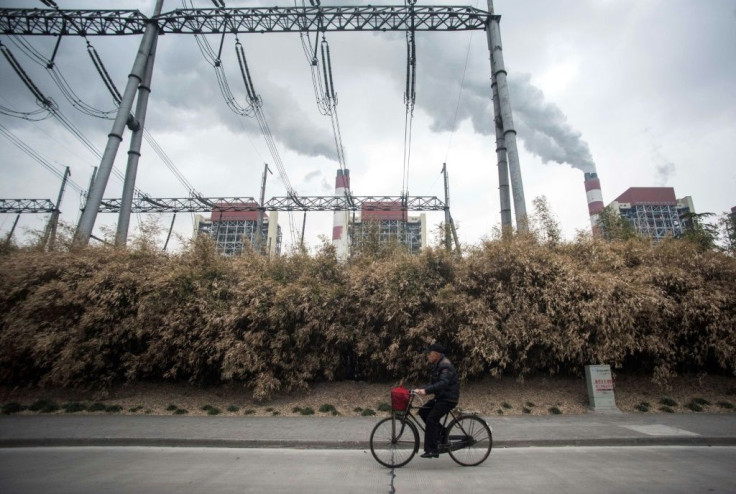Promises, Power Plants And Politics: China's Position Ahead Of COP26
Days before the United Nations COP26 summit in Glasgow, China has submitted a renewed emissions-cutting plan that failed to include substantial new commitments to drastically reduce carbon output in the near future from the world's biggest polluter.
As part of the 2015 Paris Agreement, all countries agreed to slash emissions to limit temperature rises, and to submit ambitious plans for further cuts every five years.
Ahead of the summit, which begins Sunday, we look at China's position.
Beijing's new submission to the UN confirmed its goal to achieve carbon neutrality before 2060 and slash emissions intensity -- or emissions per unit of economic output -- by more than 65 percent.
China promises to peak emissions "before" 2030, but it has failed to specify the size of the peak or set an absolute cap, meaning it can essentially keep increasing emissions until then.
By 2030, its share of non-fossil fuels in primary energy consumption will be "around 25 percent".
There was also a new commitment to increase wind and solar power capacity.
But there is little real detail of how it will achieve its climate goals.
China's new commitments are virtually unchanged from previous promises.
Environmentalists say they are not enough to cap a global temperature rise at well below 2 degrees Celsius, as stipulated in the Paris agreement.
Many had hoped for China to wean itself off coal and peak emissions much earlier than 2030, and reduce pollution from heavy industries such as cement, steel and aluminium over the next five years.
"There has been a lot of resistance within the system to embrace higher ambitions that would be in line with international ambitions," Li Shuo, from Greenpeace Asia, said.
"If we wait until 2030... the curve (for emission cuts) between 2030 and 2060 is so steep to the extent that some people think this is science fiction."
Commitments from China -- the world's biggest polluter -- matter more than any other country's.
It is responsible for emitting more than a quarter of the world's greenhouse gases linked to global warming.

The country is currently running 1,058 coal plants, more than half the world's capacity, with more in the pipeline.
US climate envoy John Kerry warned on a recent visit to China that Beijing's continued building of coal-fired plants -- the single largest source of carbon pollution -- could "undo" the potential to meet environmental targets globally.
China faces a struggle to wean itself off coal, which fuels nearly 60 percent of its economy.
Although it announced plans to have 80 percent of its economy powered by renewables by 2060, transmission and storage bottlenecks and a dwindling supply of raw materials for wind and solar farms have slowed investments in renewables.
A domestic backlash against nuclear power over safety concerns means coal is crucial to China's energy security.
Officials delayed submitting their climate pledges after a severe power crunch led to ramping up coal production, two people with knowledge of the matter said.
"They've kept it to the last minute so that they can take into account China's domestic priorities while not eroding its international image," Greenpeace's Li said.
Beijing has already committed to stopping funding coal projects overseas, and will start cutting coal output at home in 2026.
China plans to increase its forest stock by six billion cubic metres compared with 2005 levels to serve as carbon sinks, according to the UN document. This is up from 4.5 billion cubic metres.
But artificial forests planted in haste to meet official targets threatened to erode the country's biodiversity, conservationist Zhou Jinfeng warned.
Protecting biodiversity is key to adapting to life on a warming planet, but China is also yet to sign up to the "30 by 30" agenda, which commits to giving 30 percent of the Earth's land and oceans protected status by 2030.
China is reluctant to be pressured by other countries to act, and is also scoring political points.
Top climate envoy Xie Zhenhua this week said China was "going through the latest developments", including promises from other big countries, before announcing its plans.
Beijing has warned Washington that cooperation on climate matters could be hit by declining relations and criticised rich countries for giving funds that are "far from meeting the needs of developing countries to adapt to climate change".
China will also seek exemptions from the carbon tax imposed by the European Union, experts said.
While more than 120 heads of government will travel to Glasgow, President Xi Jinping has not left China during the pandemic and is unlikely to attend.
© Copyright AFP 2024. All rights reserved.











